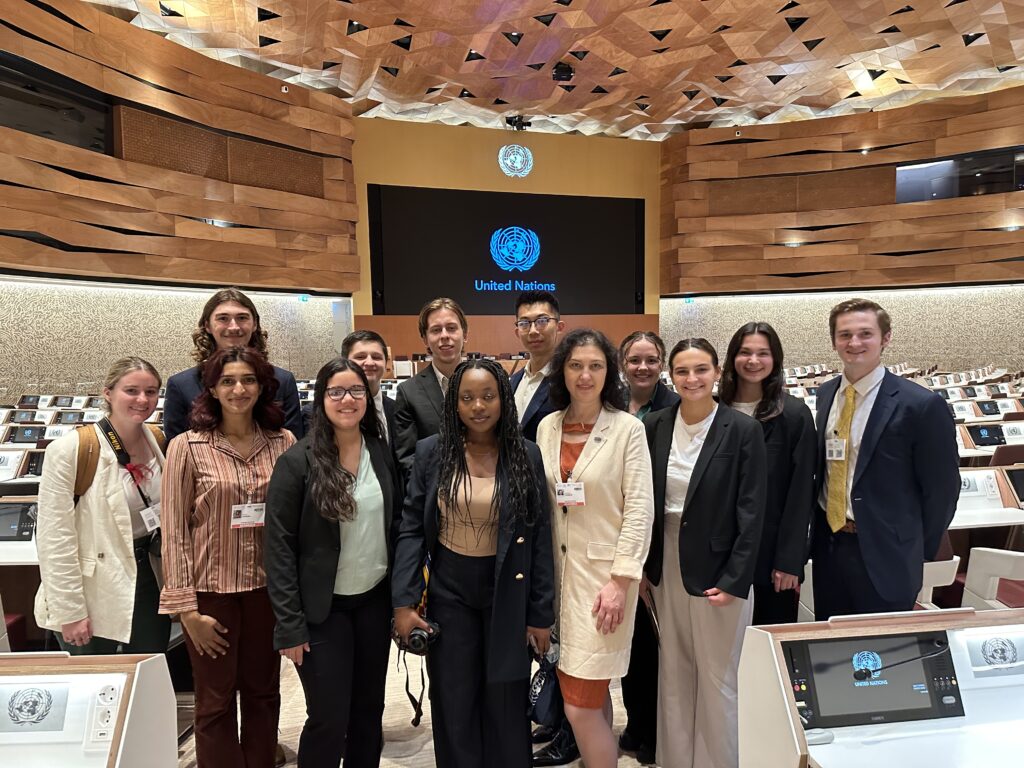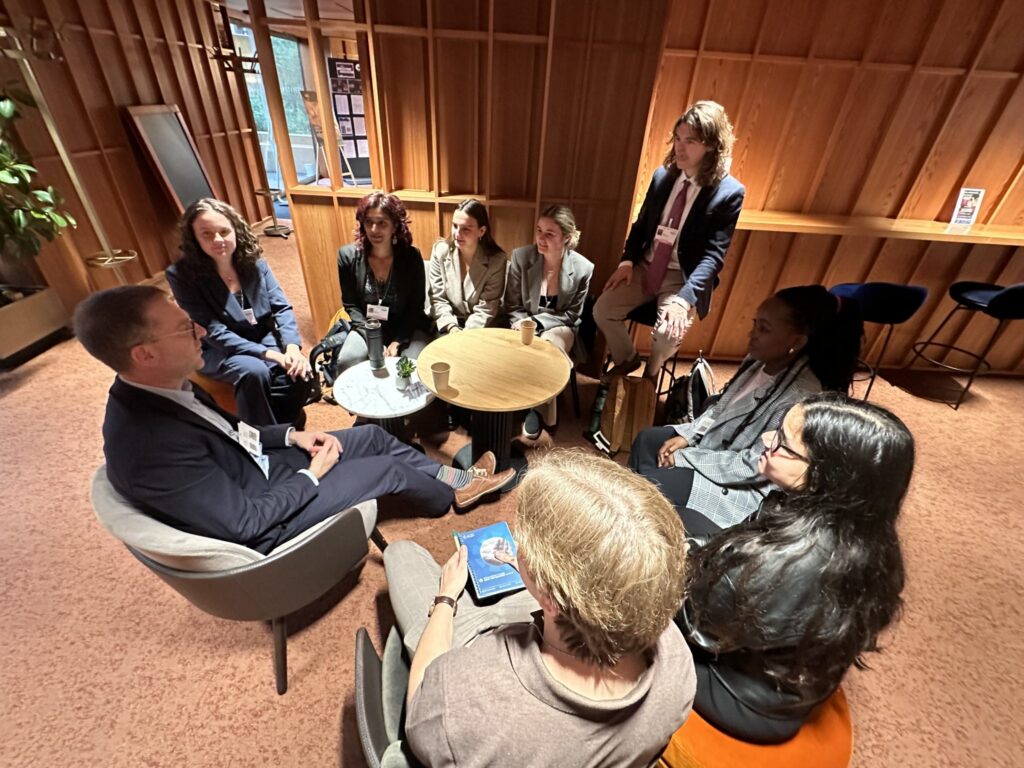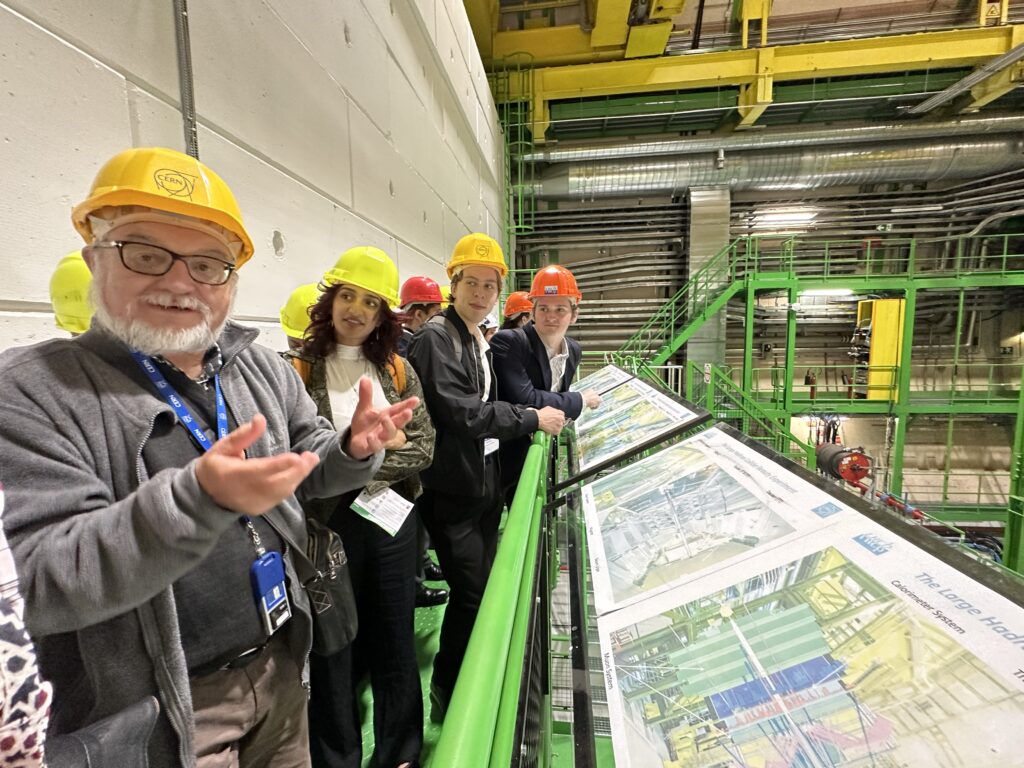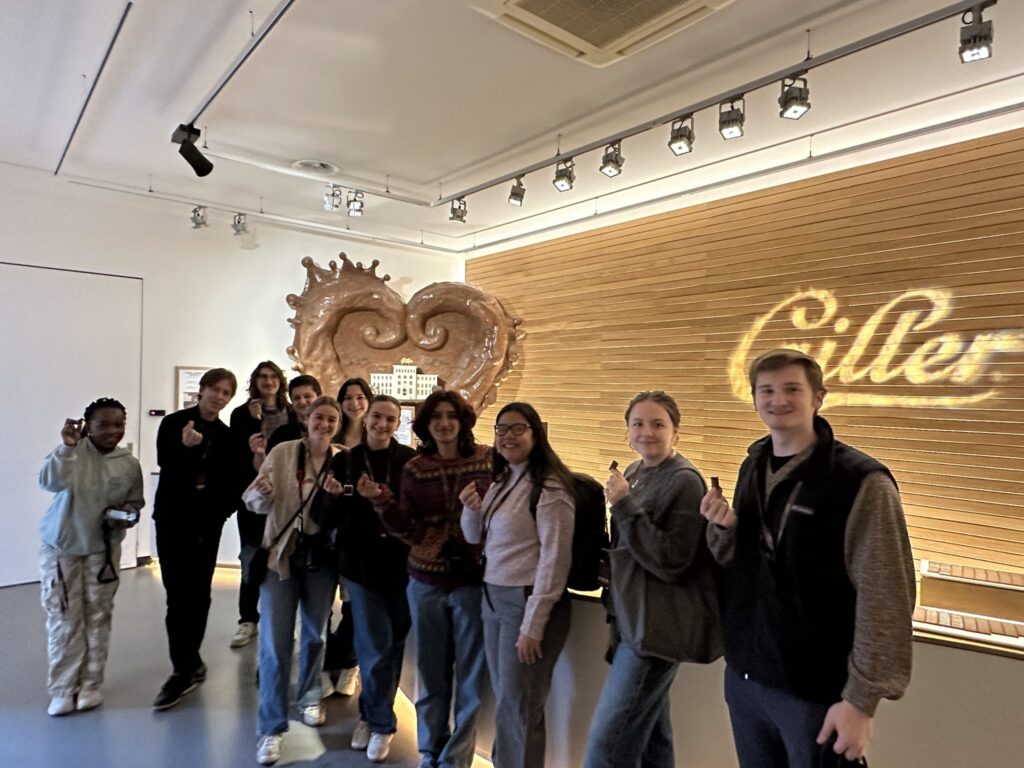
From October 28 to November 4, 2023, 11 students accompanied by civil and environmental engineering professor, Svetoslava Todorova, attended the 5th Conference of the Parties (COP5) of the Minamata Convention on Mercury held in Geneva, Switzerland. This trip was part of the Role of Science in Environmental Governance course where students explored how scientific, political, social, and economic views shape environmental policy.
At the conference, students observed delegates discussing the environmental impact of mercury pollution, which has become a public health issue due to its harmful effects on the nervous, digestive, and immune systems and lack of biodegradability. Participation in these ongoing negotiations helped students understand the complexity of reaching international agreements.
“No matter the preparations made in the classroom and on our own, being an observer at COP5 showed me that there is no replacement for experiencing the negotiations firsthand. It was interesting to see how many moving pieces go into these conventions, and increased my appreciation for the work they do and what they can accomplish,” says environmental engineering student Brady Hartnett ’24.
The students witnessed several key decisions being made, including the establishment of new timelines for phasing out products containing mercury, recognizing the disproportional impact of mercury pollution on Indigenous communities in the Arctic and Amazon regions, and coming to an agreement on the threshold for mercury waste.
“I think one of the most challenging aspects of the COP-5 negotiations was getting all the countries to agree on particular topics. This became evident when the threshold for the mercury levels in waste was being discussed. It took the delegations seven years to finally agree on this threshold. I am very glad that I had the privilege of witnessing this history being made,” says civil engineering student Caitlin Spillane ’24.
Students also had the opportunity to meet with delegates, non-government officials, and UNEP representatives from several different countries.

“We had a networking opportunity with Ken Davis, a former Peace Corps Volunteer and EPA employee who works for UNEP, as part of the Minamata Secretariat,” says environmental engineering student Ananya Chandra ’24. “He gave valuable insights about the importance of international negotiations, the mechanisms of the Minamata Convention, and his career path.”
Todorova and her students also visited CERN, one of the world’s largest centers for scientific research on fundamental particle physics, and received a special in-depth tour of the particle accelerator. This was made possible by Syracuse University professor Marina Artuso and Bolek Pietrzyk from CERN.

“It was so interesting to be touring places that not only hold global significance but are places that people work every day,” says civil engineering student Julia Johnson-Milstein ’25. “Walking through those hallways, I knew that I was passing some of the brightest minds in the world.”
On their final day in Switzerland, they visited a cheese and chocolate factory, ending their memorable trip with a fun tour.
“The trees and villages I saw on the bus to the factories are the same trees and villages that are impacted by environmental regulations that are decided on in rooms much like those I sat in. It was watching the mountains protect the nature underneath that showed me how important the work of the last week was, and I will be forever grateful for this experience,” says psychology student Gary Shteyman ’26.

When Todorova and her students returned to Syracuse, the class held their own intergovernmental negotiations. Acting as delegates representing different countries and regions, they developed a new mercury treaty.
“This is experience-based learning at its best because it trains students by immersing them into an authentic situation,” Todorova says. “It was also rewarding to see them apply the negotiation techniques we discussed in class as well as to replicate the dynamics they observed during the real convention.”
